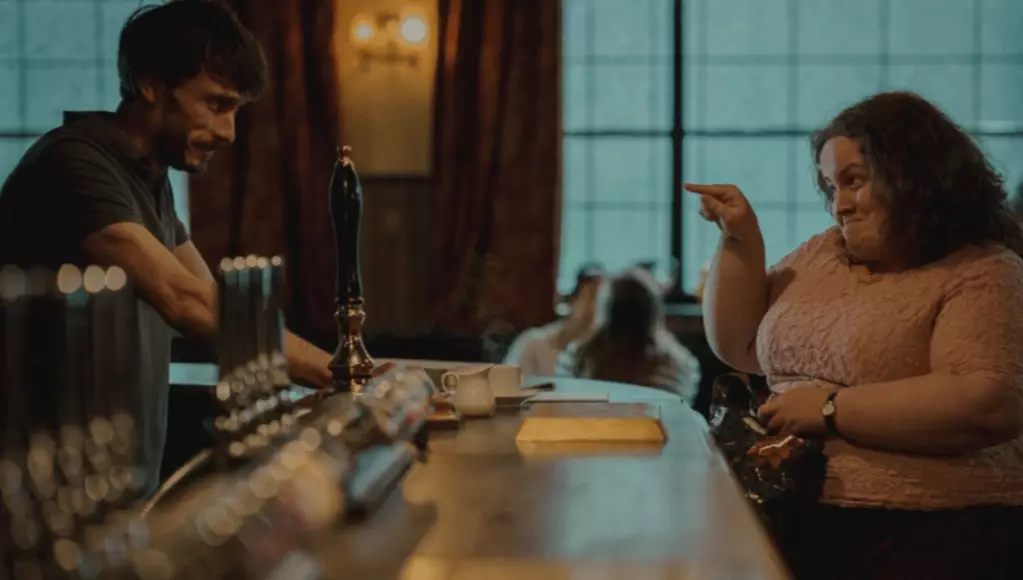In today’s media landscape, the distinction between fact and fiction is increasingly blurred, particularly when it comes to visual storytelling. The recent controversy surrounding Richard Gadd’s Netflix creation, *Baby Reindeer*, exemplifies the complexities and consequences that arise when personal narratives are publicly dramatized. Following Gadd’s impressive wins at the Emmy Awards—an achievement underscoring his talents in acting, writing, and producing—an unfortunate subplot has emerged, focusing on Fiona Harvey, a woman who claims her life was misrepresented in the gripping, yet arguably fictional, tale of obsession and anxiety.
Harvey has been vocal about the profound impact that the portrayal of her character has had on her daily life. The Daily Mail reported her expressing overwhelming fear and anxiety, stating that she is reluctant to leave her home, fearing potential repercussions related to her depiction. This raises significant questions about the ethics of storytelling, notably when the narratives of real people are at stake. Her description of panic attacks, insomnia, and chronic anxiety highlights the mental health ramifications that can arise from perceived public humiliation. The disparity between Gadd’s newfound celebrity status and Harvey’s ongoing anxiety is stark and troubling.
While entertainment is often rooted in exaggeration and dramatization, the fragility of real lives should ideally take precedence over a creative narrative. As Richard Roth, Harvey’s legal counsel, pointed out to the media, the chasm between Gadd’s triumph and Harvey’s torment could not be more apparent. This brings to light an uncomfortable reality: the person who is ostensibly reduced to a mere plot device can experience genuine emotional distress as a result of artistic liberties taken in the name of storytelling.
In a move that underscores the seriousness of her claims, Fiona Harvey has filed a $170 million lawsuit against Netflix. The legal action, rooted in allegations of defamation and emotional distress, seeks to address what Harvey perceives as the reckless handling of her story. At the heart of the lawsuit is the assertion that *Baby Reindeer* mischaracterizes her as a stalker—a designation she vehemently denies. The stark difference in the legal and moral implications of this claim, situated against the backdrop of Gadd’s narrative hyperbole, brings forth larger questions regarding the responsibility that creators bear when drawing from reality.
Notably, Gadd’s own statements have highlighted the fictionalized nature of his series, asserting that while it is inspired by real events, the portrayal is not an exact replica of facts. This ambiguity adds to the layers of conflict, as viewers may interpret the show as adhering to a true story label, unaware of the artistic license taken. The Netflix CEO, Ted Sarandos, has maintained that the intent was never to mislead, yet this incident illustrates the fine line that creators must navigate when balancing authenticity with dramatization.
The dilemma at hand opens up broader dialogues surrounding the ethics of storytelling in the modern age. As media consumers, we are regularly confronted by narratives that claim to depict “true stories,” yet we are often unaware of the real-life consequences that may stem from such portrayals. Harvey’s case serves as a poignant reminder that stories have real-world implications, capable of inflicting emotional pain on individuals who may feel trapped by public perception shaped by entertainment.
Ultimately, the saga surrounding *Baby Reindeer* is a cautionary tale about the responsibilities of content creators in the digital age. It highlights the need for sensitivity when dealing with personal narratives, emphasizing that while stories may captivate us or entertain, they can also traumatize those who find themselves ensnared in the web of public representation. As audiences, it is essential to engage critically with the media we consume, recognizing the potential for harm that lies beneath the glitz and glamour of storytelling.
The fallout from Richard Gadd’s Emmy-winning series warrants deeper consideration of the consequences tied to narrative crafting and the ethical obligations that come with reimagining reality. Both Gadd and Harvey find themselves entwined in a story larger than themselves, challenging us to think about how far one can go in the name of storytelling before crossing the line into emotional turmoil for real individuals.
